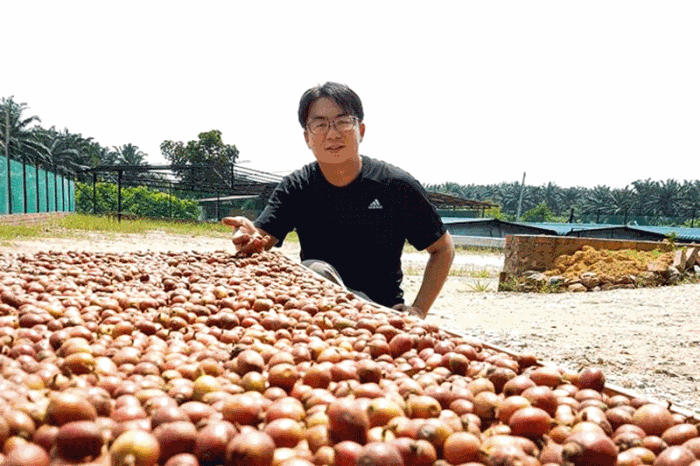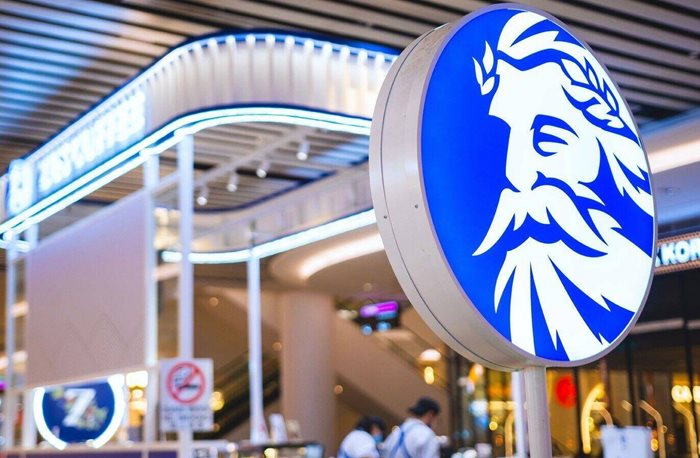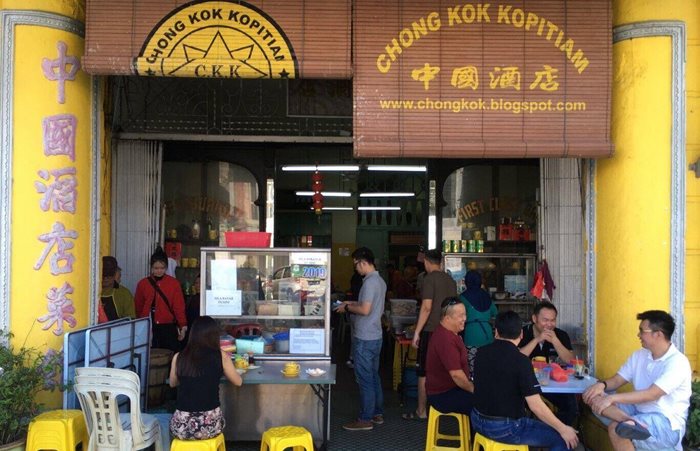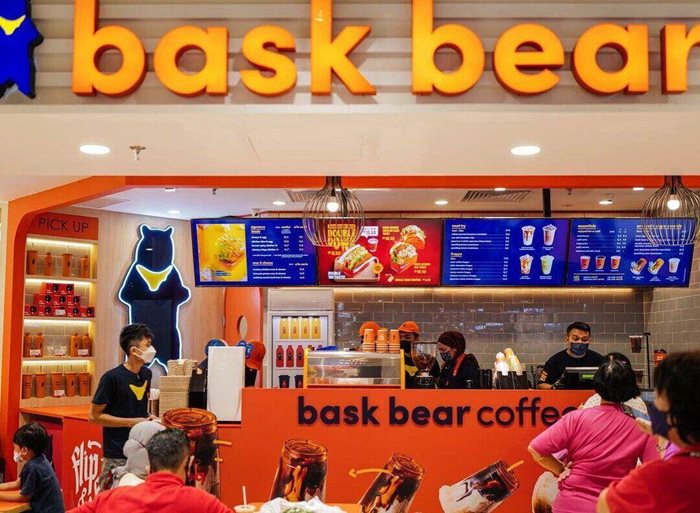A melting pot of Malay, Chinese, Indian and European cultures, Malaysia’s coffee shop market is undergoing rapid development, blending generations-old traditions with international trends and a growing thirst for premium coffee experiences, reports Isabelle Mani
.jpg.aspx?lang=en-GB&width=700&height=440)
Jalan Alor food market in Kuala Lumpur, Malaysia | Photo credit: Vladimir Zhoga / Shutterstock
Take a stroll through almost any Malaysian neighbourhood and you’re likely to stumble across a kopitiam – informal cafés serving local favourites such as ipoh white (coffee with condensed milk), kopi O (black coffee with sugar), and toast spread thickly with kaya, a traditional jam made from coconut and eggs. Malaysia’s strong traditional coffee heritage still resonates today, with modern kopitiams, such as 180-store OldTown White Coffee and six-store business George Town White Coffee, serving up locally inspired hospitality with a contemporary twist.
Malaysia is also a fast-developing hub for premium international coffee chains. Indonesia’s Kopi Kenangan and Tanamera, South Korea’s Paris Baguette, Singapore’s Bacha Coffee, the UK’s EL&N and US-based Ralph’s have all entered the market over the past year.
Meanwhile, Starbucks licensee Berjaya Food surpassed 400 stores across Malaysia in November 2023, with value-focused domestic operators such as Zus Coffee, Bask Bear and Gigi Coffee making premium and specialty coffee more accessible than ever before.
World Coffee Portal data shows the Malaysian branded coffee grew 28% to exceed 3,330 outlets over the past year, with this astonishing growth spurred by a healthy economy expected to expand 4-5% in 2024.
“Specialty coffee is crucial in nurturing a growing community of young coffee enthusiasts”
Bryan Loo, founder and CEO, Bask Bear
Bringing in the bean counters
Data from the Department of Statistics Malaysia (DOSM) shows the average Malaysian consumed 2.2kg of coffee in 2022, a 5.2% increase on 2017. However, in addition to drinking more coffee, Malaysians are increasingly seeking higher quality beverages – and the market is evolving.
“With increasing disposable incomes and purchasing power and with the majority of the population now living in urban centres, coffee consumption has been increasingly influenced by Western trends in the past 30 years,” says Usamah Makmum, a former Starbucks store manager and hospitality trainer in Kuala Lumpur who now works as a food and beverage business consultant.
The Malaysian government is also supporting domestic start-ups and attracting foreign investment through tax breaks, simplified regulatory frameworks and funding programmes.
“Malaysia’s strong infrastructure, such as its well-developed transportation and logistics networks, combined with the government ’s efforts to encourage foreign investments, makes it easy for international coffee brands to be drawn in,” Makmum adds.
The Securities Commission Malaysia (SC) 2022 Annual Report shows venture capital investments in domestic start-ups increased 27.5% between 2021 and 2022. Additionally, the Malaysian Investment Development Authority (MIDA) reports that foreign direct investment (FDI) into Malaysia rose 8.3% in 2021-2022.
Nevertheless, Malaysia has a strong domestic chain segment comprising nearly 60% of the total branded coffee shop market, World Coffee Portal data shows, with many of these operators at the forefront of market development.

My Liberica founder Jason Liew with liberica coffee cherries | Photo credit: Courtesy of Jason Liew
Kopi meets latte
Historically, Malaysia (known as British Malaya until independence in 1957) was a tea-drinking culture influenced by decades of British colonialism from the late 1800s. However, coffee consumption also began to grow from late 19th century, particularly among Malaysia’s Hainanese Chinese community.
These immigrants introduced kopitiams (a term blending kopi for coffee and tiam for shop in Malay dialect), small stalls serving traditional Hainanese coffee – a blend of dark roasted robusta and liberica often sweetened with sugar or condensed milk – which forms the bedrock of contemporary Malaysian coffee culture.
“Traditional kopi coffee is still widely consumed, and thrives in parallel with a fast-growing segment of specialty and premium foreign coffee chains”, says Makmum.
Malaysia’s coffee culture underwent significant transformation in the 1990s with the arrival of international chains such as The Coffee Bean & Tea Leaf and Starbucks Coffee Company amid rapid urbanisation and development from an agrarian into globally integrated economy.

A Zus Coffee store in Kuala Lumpur, Malaysia | Photo credit: Abdul Razak Latif / Shutterstock
Malaysia’s urban contribution to GDP has more than doubled since 1980, with the capital Kuala Lumpur accounting for nearly half of the country’s total economic output according to the World Bank 2023 Development Indicators Report. The urban population has also increased significantly, rising from 36.7% of the country’s total since 1980 to more than 77% today.
“Traditional kopi coffee trives in parallel with a fast-growing segment of specialty and premium coffee chains”
Usamah Makmum, Malaysian food and beverage consultant
Kuala Lumpur is home to a diverse market of domestic and international coffee chains such as Australia’s Gloria Jean’s Coffees, local favourites such as Zuzu and OldTown White Coffee, and high-end and specialty coffee boutiques like VCR Cafe and Pulp by Papa Palheta.
The generational shift
The majority of Malaysia’s premium coffee consumption today is led by tech-savvy, relatively affluent, younger consumers who led the adoption of digital transactions and in-app purchases. A 2023 study by the Malaysia Coffee Association (MCA) found Millennials are a key coffee-consuming demographic with 85% drinking coffee at least daily compared to 68% of the general population.
Gen Z is also increasingly embracing out-of-home coffee, with a significant number making regular purchases, according to Bryan Loo, the founder and CEO of Loob Holding-owned Bask Bear, a tech-led coffee brand with 110 physical stores and 120 delivery-only outlets.
“Malaysian consumers now embark on their coffee journey as early as in secondary school with trending beverages such as coffee smoothies and frappuccinos. The challenge for Malaysian coffee brands is to capture the interest of future coffee drinkers at an early age,” Loo says.
Crucially, both groups are willing to pay more for high-quality coffee experiences and have created a solid market for coffee chains to thrive in – and fuelling their curiosity has been crucial for market development.
Created in 2013, the Malaysian Specialty Coffee Association (MSCA) has seen a significant increase in membership, growing from just 30 to more than 200 today. Keith Koay, a three-time Malaysian champion barista and entrepreneur who owns three coffee businesses in Petaling Jaya City, credits the MSCA with raising quality coffee demand among consumers and paving the way for premium coffee consumption.
“Traditional coffee has always been part of the local heritage, and price still directly impacts purchase decisions. On the other hand, specialty coffee emphasises quality and ideas and its appeal depends on consumer awareness and spending power,” he says.

A traditional Kopitiam store in Klang, Selangor, Malaysia | Photo credit: Mickey-12 / Shutterstock
Global trends, local flavours
The MCA’s Malaysia Coffee Industry Report 2023 indicates ‘mid-range’ coffee shops – typically pricing beverages at RM 5 to RM 8 ($1.07- $1.70) per cup – are the largest group of operators in the Malaysian coffee shop market, holding a 48% share in 2022. Meanwhile, Malaysia’s ‘premium’ operators typically charge RM 7 and RM 12 ($1.50-$2.60) for espresso-based beverages.
Bask Bear operates within the mid-scale, positioning itself as an affordable option with a focus on Gen Z consumers. Loo says it makes the brand 30%-40% more cost-effective than leading international coffee chains in Malaysia.
“Our pricing strategy caters to a broad audience, with most customers ordering at least weekly,” says Loo.
While a focus on technology and data-driven strategies to cut costs and intermediaries has been successful elsewhere in Southeast Asia, Loo believes brands must prioritise local tastes and innovative food offerings to succeed in Malaysia.
Loo believes competing solely on price will inevitably lead to deep discounts, promotional gimmicks, and ultimately the erosion of brand equity. With food generating around 50% of sales, menu innovation is a priority for Bask Bear and the chain launches new menu items every two weeks.
Bask Bear isn’t the only Malaysian branded coffee chain offering a cornucopia of infused coffee beverages to suit local tastes. Gigi Coffee, which operates 100 stores across Malaysia, offers an ‘essential’ range of espresso-based beverages complemented by locally inspired drinks, such as buttercream latte, a sweeter take on traditional Malaysian butter coffee (kopi gu you), alongside a colourful range of fruit-infused iced coffee beverages aimed at younger consumers.
Fellow Malaysian operator Zus Coffee offers an espresso-based beverage infused with gula melaka, a palm sugar syrup often combined with pandan leaves and served as an iced coffee beverage.

A Bask Bear outlet at AEON Taman Maluri Store & Shopping Centre, Jalan Jejaka, Kuala Lumpur | Photo credit: Loob Holding
Long live liberica
Malaysia is home to approximately 2,000 coffee producers, mostly concentrated in the states of Kedah, Johor and Saba. According to the UN Food and Agriculture Organization, liberica accounted for approximately 87% of domestic production in 2022, with robusta and arabica at 10% and 3% respectively. In fact, Malaysia is the world’s second largest producer of liberica behind the Philippines. However, with the country producing around 160,000 60kg bags of coffee per year, domestic consumption of 800,000 bags far outstrips supply. As a result, in 2022 Malaysia imported over 95% of its coffee, primarily from Indonesia, Vietnam and Brazil.
Liberica is perceived as a heritage coffee crop in Malaysia, with younger consumers typically perceiving arabica as higher quality. Nevertheless, local roasters are leveraging liberica’s traditional appeal, high sweetness and smoky, woody, floral notes to create a distinct identity for the Malaysian speciality coffee segment.
My Liberica is a five-store specialty coffee shop and roaster founded by Jason Liew in 2011. The Johor Bahru-based business trades as the only domestic operator in the country sourcing specialty coffee directly from Malaysian farms.
“Liberica is still the preference in Malaysia, but due to its high production cost and limited availability of premium beans it’s mostly used in commercial blends,” says Liew.
However, Liew believes the Malaysian specialty coffee segment is leading a transformation towards a rise in quality and consumption of the more obscure of the three commercialised coffee species. Liberica, according to the International Coffee Organization (ICO), represents just 2% of coffee traded globally.
“If liberica can be produced to high standards, Malaysians will increasingly embrace it due to their historical attachment to it,” he says.
“Traditional coffee has always been part of the local heritage”
Keith Koay, three-time Malaysia Barista Champion
For Liew, his company is proof of the potential for specialty liberica on a global scale. In 2021, My Liberica worked with Australian Barista Champion and coffee trainer at Ona Coffee, Hugh Kelly, who used liberica for the first time in the history of the World Barista Championship. Further establishing liberica’s reputation on the world stage, the annual International Liberica Roasting Competition has been held in Kuching, Sarawak, since 2019.
Despite liberica’s growing appeal, Koay acknowledges that hurdles remain. “Specialty liberica penetration in Malaysia is challenged by high production costs. Liberica is a huge cherry, which makes all available processing equipment inefficient, be it hulling or depulping,” he says.
However, this hasn’t deterred Bask Bear from introducing a liberica range across its stores to cater to growing demand for locally-inspired flavours. “Specialty coffee is crucial in nurturing a growing community of young coffee enthusiasts in Malaysia and all of South Asia,” says Loob Holding’s Loo.
Like branded coffee shop markets across southeast Asia, Malaysia is undergoing rapid development, with World Coffee Portal data forecasting the total market will exceed 6,000 stores by 2028. Blending first wave kopitiam traditions with a burgeoning specialty coffee industry, Malaysia is truly a melting pot of cultures and traditions, with a forward thinking young consumers spearheading development.
And, with a growing number of prestigious international operators investing in the market and embracing its heritage, Malaysian coffee culture looks set to grow its influence on the world stage.
This article was first published in Issue 17 of 5THWAVE magazine.
Subscribe to 5THWAVE to receive each edition in print and digitally or sign up to our newsletter and be the first to read the latest articles and updates on World Coffee Portal research.
.jpg.aspx?lang=en-GB&width=700&height=180)